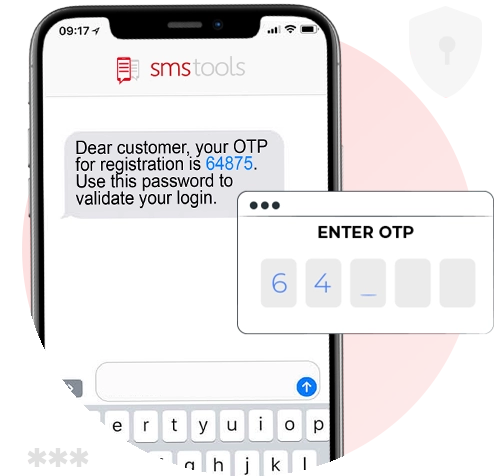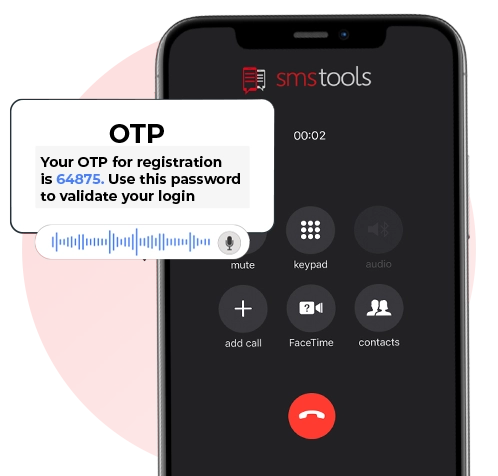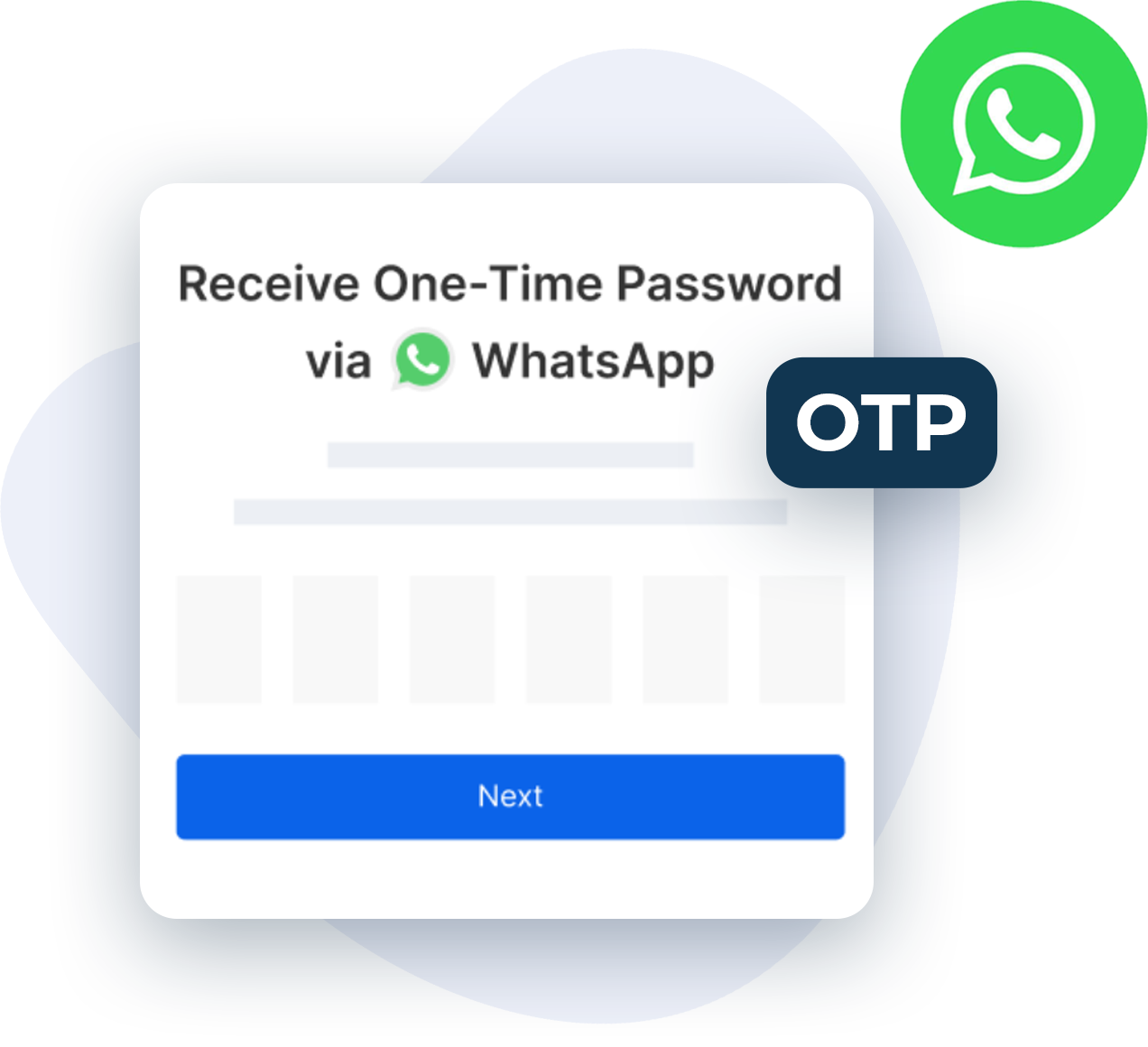One Time Passwords
Use OTP authentication through SMS or Voice to secure your data, accounts, and user transactions through Two-Factor Authentication API.
What is an OTP (One Time Password)?
Just a password as security isn’t secure enough anymore. Protect your customers from unauthorized accesses with Two Factor Authentication (2FA) or a One Time Password (OTP).
A One Time Password is a series of characters or numbers that are automatically generated for a single login attempt. One Time Passwords can be sent through SMS or Voice to the user's phone and are used to protect web-based services, private information, and data.
An OTP adds an additional layer of security to your application. Users no longer have to log in solely with their password, but they also need to identify via an OTP through SMS or Voice.
One Time Passwords through SMS
With an open rate of 98% within 30 seconds, SMS is known for its high reliability. By sending one-time passwords via SMS, you are sure to reach your users no matter where they are. Even offline, when users do not have access to the internet, they can still use this OTP authentication solution.
REGISTER

One Time Passwords through Voice
An alternative to SMS is Voice. With Voice, the spoken password is received as a phone call on the user's cell phone. You can also use Voice as a backup if your SMS message is not delivered.
REGISTER
One Time Passwords via Whatsapp
When it comes to keeping online accounts secure, one-time passwords (OTPs) are crucial. Many businesses depend on OTPs to ensure only authorized users access their accounts. Typically, these messages are sent via SMS, but they can also be sent through WhatsApp.
With WhatsApp OTPs, a unique passcode is sent to a user’s registered WhatsApp phone number. It’s a quick, easy, and secure way for them to verify their identity and carry out transactions.

<?php $ch = curl_init(); $url = "https://api.smsgatewayapi.com/v1/message/send"; $client_id = "XXX"; // Your API key $client_secret = "YYY"; // Your API secret $data = [ 'message' => "Hello World", //Message 'to' => "11231231234", //Receiver 'sender' => "YourName" //Sender ]; curl_setopt($ch, CURLOPT_URL, "$url"); curl_setopt($ch, CURLOPT_POST, true); curl_setopt($ch, CURLOPT_RETURNTRANSFER, true); curl_setopt($ch, CURLOPT_VERBOSE, true); curl_setopt($ch, CURLOPT_HTTPHEADER, [ "X-Client-Id: $client_id", "X-Client-Secret: $client_secret", "Content-Type: application/json", ]); curl_setopt($ch, CURLOPT_POSTFIELDS, json_encode($data)); $response = curl_exec($ch); ?>
Easy integration
With our SMS API you can extend your software with an SMS integration. Integrating our SMS API is very easy so you can quickly connect your website or software to our powerful SMS platform
API documentation





